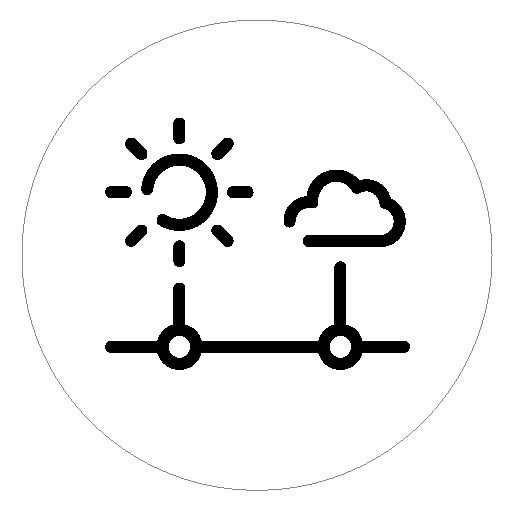Sustainability
Our focus on world-class solutions in sustainable energy contributes to the global goal to reduce emissions of greenhouse gases into the atmosphere.
Our entire value chain, from vision to end customers, must be based on the principles of sustainability set down in our business principles.
We are responsible not only for the financial results of our operations but also for their social and environmental impact. NIBE’s responsibility forms the Group’s framework for sustainability efforts in four different areas.

NIBE takes responsibility

Business
– with products that benefit the environment

Environment
– with change
to renewable energy and targets for increased re‑ cycling and reduced waste to landfill

Employees
– with good working environment, diversity and
equal treatment

Local societies
– good working conditions and local partnerships for the future
Advanced Technology
NIBE works with a vast range of technologies and materials, and all contribute to the various solutions we can offer in these sectors.
New tools and equipment are an integral part of advancing these applications and in making new scientific discoveries.
We recognize the importance of technological advances and we are therefore constantly developing and designing heating solutions to meet evolving market demands. Our knowledge and expertise in heating products allow us to produce heaters that can meet your specific heating requirements. Among our customers are several world renowned companies.




Examples of advanced technology applications
Indoor climate solutions
Sterilization equipment
Disinfection equipment
Night vision systems
Surveillance/security
Packaging machine
Surgical tables/beds
Incubators
Dialysis
Laboratory research
equipment
Satelite dishes
Space crafts
Lenses
Defense
Telecom
Cabinets
Graphics
Robotics
Elevators Autoclaves
DNA analysis Respirators
Smart living
Over the coming decades, digital technologies are set to make energy systems around the world more connected, intelligent, reliable and sustainable.
Stunning advances in data, analytics and connectivity are enabling a range of new digital applications such as smart appliances and shared mobility. In the future, digitalised energy will be able to identify who needs energy and deliver it at the right time, in the right place and at the lowest cost.
In all levels of society, we can see our energy systems and applications becoming smarter. As energy technologies develop, new energy applications appear that help us produce, buy and use energy in a much smarter and more sustainable way.
Smart energy is a broad concept affecting every part of the energy landscape, from the infrastructure’s design to the consumer’s everyday applications.
We are turning into both smarter consumers and producers.


Looking closer at the energy infrastructure we can see our grids getting smarter. Energy can now be provided when it is most needed or utilised efficiently when there is peak production.
Smart grids are not only efficient but also intelligent. By making use of energy and weather data they can balance their networks depending on whether the sun is going to shine or not.
Smart grids also allow the possibility for consumers who already produce their own energy to sell access to the grid at the most favourable price.